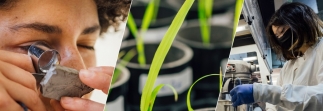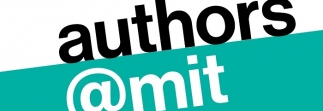In the new episode in the series of podcasts on scholarly publication and copyright, we hear from Professor John H. Lienhard V, Professor of Mechanical Engineering here at MIT.
Professor Lienhard’s research interests include Heat and Mass Transfer and Fluid Mechanics, among other areas. He is the recipient of several teaching awards at MIT as well as research awards from the American Society of Mechanical Engineers.
He speaks about making his text book — the 3rd edition of A Heat Transfer Textbook — openly available on the web, with no charge to readers. This text was coauthored with Professor Lienhard’s father, John Lienhard IV, who is a professor at the University of Houston. It was published by Prentice Hall in two print editions in the 1980s, and remained in print until the mid 1990s.
In the podcast, Professor Lienhard, whose goal was to “explore the impact that free textbooks could have on higher education,” reflects on how the project came about and what it has meant to those who have downloaded the text, as well as to him.
Download the audio file. (15:10 minutes; 11.1 MB)
Beyond the podcast: More about A Heat Transfer Textbook
Professor Lienhard’s experiment was a remarkable innovation at the time. Certainly its astounding success could not have been foreseen back in 2001, when he and his father launched the open access version. That was before ebooks were widespread, before OpenCourseWare had made the idea of freely accessible educational materials a hot topic, and when internet connections were still slow enough that it took quite a commitment to download the 8 – 10 MB book. Yet the downloads built quickly and the rate has not let up.
One of the unexpected outcomes of this experiment with open textbook publishing was that the freely downloadable 3rd edition reached a completely different and much larger audience than the first two print editions had. The Prentice Hall editions were not marketed internationally, and the buyers were largely American college students, and American college professors. Professor Lienhard estimates that the sales were perhaps 10,000 for each of the first two print editions, a very respectable number for a printed textbook.
In contrast, the open access version has been downloaded more than 150,000 times from more than 150 countries — so the scale of the audience has increased by an order of magnitude. The recipients of the open access version are not primarily American students or professors; they are practicing engineers in the U.S. and elsewhere, and, to an overwhelming extent, students in the developing world who have little to no access to quality textbooks in engineering and science. Professor Lienhard discusses the moving testimonials he’s received from these students in the podcast.
The other episodes in the podcast series are available on the scholarly publication website. To subscribe to the MIT Libraries’ Podcasts on Scholarly Publishing, paste this link into iTunes or another podcast reader: http://feeds.rapidfeeds.com/6772/
We encourage and welcome your feedback, which you may direct to copyright-lib@mit.edu.


